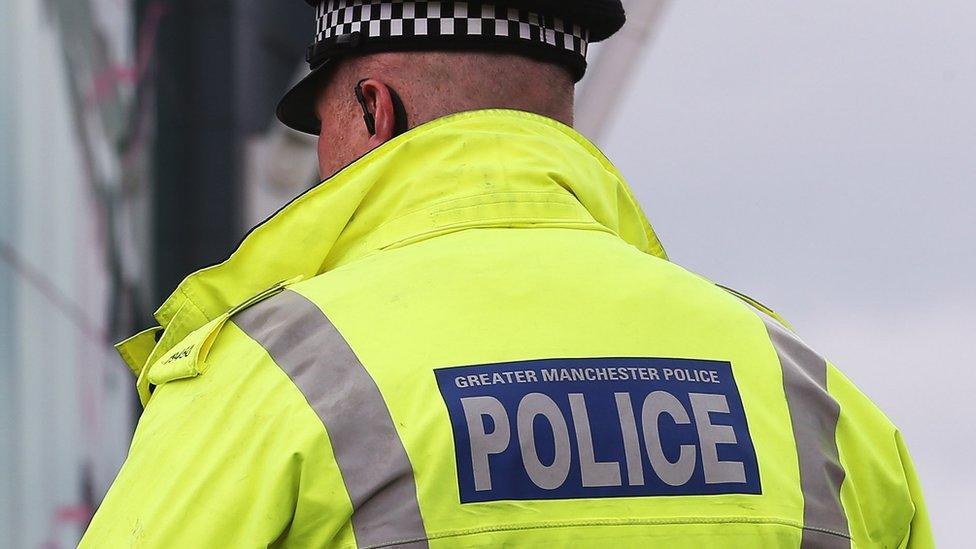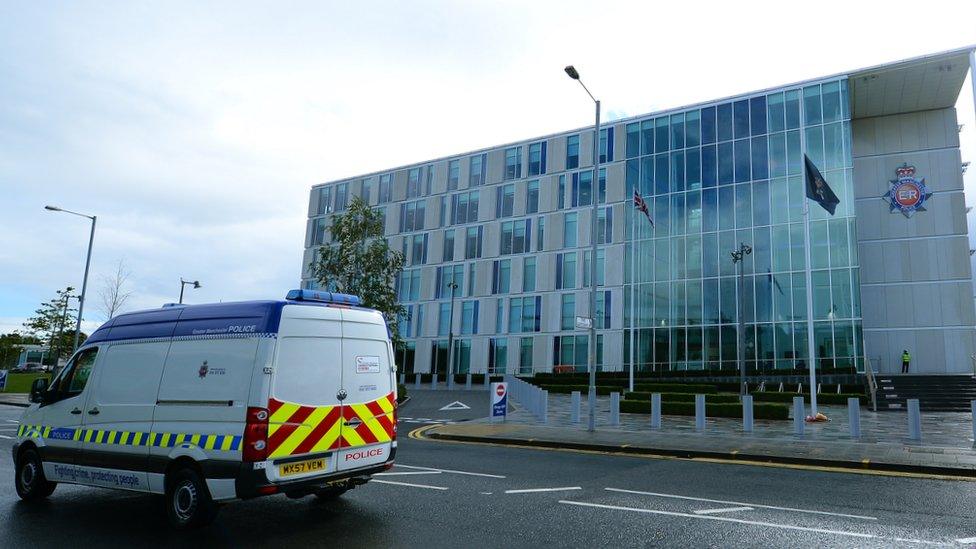Domestic abuse privacy breach: Greater Manchester Police pays victim
- Published

The £75,000 payout is believed to be one of the biggest by a British police force in a privacy case
A domestic abuse victim has received £75,000 from a police force after it revealed details of her treatment by a former boyfriend without her consent.
The unnamed woman had agreed Greater Manchester Police (GMP) could refer to her experience in a training session providing she remained anonymous.
However, she later learned her identity and medical history were disclosed to a wider audience.
GMP has apologised and said "steps" had been taken to stop similar occurrences.
'Felt betrayed'
The victim's solicitor said the payout was believed to be one of the biggest by a British force in a privacy case.
In a witness statement, the woman, who agreed to an out-of-court settlement, said she "felt betrayed by GMP".

Analysis: Clive Coleman, BBC legal correspondent
The errors in this case by Greater Manchester Police almost beggar belief. Safeguarding victims is the most important priority in domestic violence police work.
Revealing a victim's identity, medical history and distressed 999 call, against their wishes, represents very grave mistakes. This episode is hardly likely to increase victims' confidence in the police.
The case also illustrates the use of part of the civil law that has principally been seen in cases involving celebrities whose privacy has been breached by newspapers.
'Misuse of private information' has been argued in a number of cases. It relies on a breach of Article 8 of the 1988 Human Rights Act; the right to respect for a private and family life.
The claimant has to establish they have a reasonable expectation of privacy in relation to the information concerned, and that privacy has been breached.
The media can argue the claimant's right to privacy is outweighed by the right to freedom of expression and that there is a public interest in publishing. The police have no such defence.
This case shows that Article 8 is not simply for celebrities and that public bodies, such as the police, can be sued if they breach it.

Nick McAleenan, from JMW Solicitors, described his client as a "successful, professional woman".
He said she "suffered psychiatric harm" after learning that her personal information was disclosed and that a tape of her 999 call following an assault was played at a training session.
He added GMP had initially refused to accept it had done anything wrong and its internal investigation concluded no officer had infringed the police code of conduct.
In May 2014, the force admitted breaching the woman's privacy but refused to acknowledge she had suffered distress or loss as a result which would entitle her to any damages.

GMP admitted they had made an "unacceptable mistake"
Mr McAleenan said: "This is information out there in the public domain. She can't put the genie back in the bottle and it's something that she is going to have to live with for the rest of her life".
The lawyer also said: "People can be a bit blase about data privacy breaches and think it doesn't really matter, but it can have serious consequences as this case shows."
He added: "People rely on the police to protect them and to protect their information."
A GMP spokeswoman said it was "an exceptional case", adding: "The force has taken action to protect the individual's information to prevent any issue in the future."
She added: "We have apologised to the woman involved. This was an unacceptable mistake; however, it was done with the best of intentions as part of training for partner agencies around recognising the signs of domestic abuse."
A spokesperson from the domestic abuse charity, Women's Aid, said: "Survivors of domestic abuse should be able to expect the highest standards from the police - and the police should be extremely careful when dealing with survivors.
"The survivor in question could have been put in a very dangerous situation; highly manipulative perpetrators of domestic abuse will stop at nothing to find out where their former partner is, or to gather information on them."